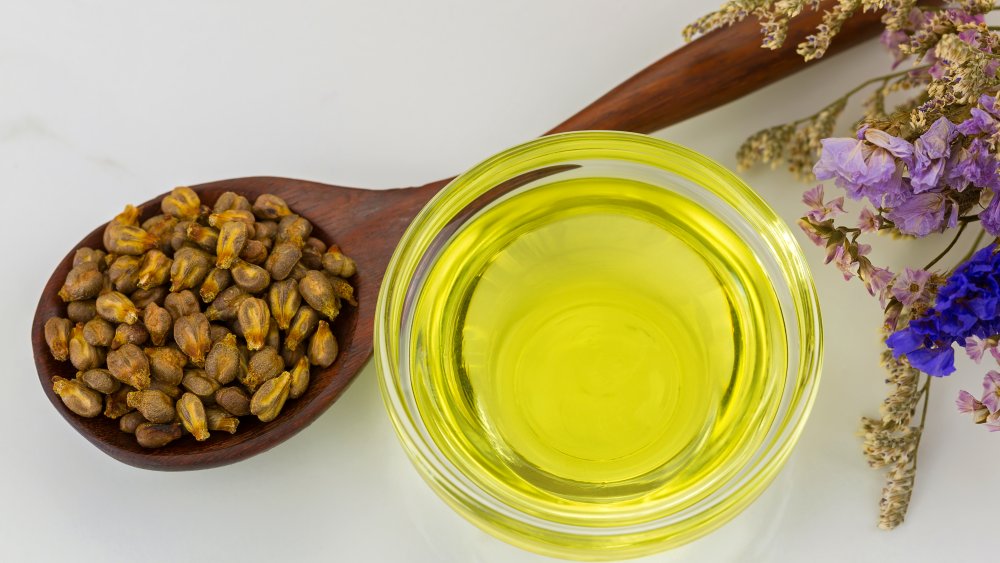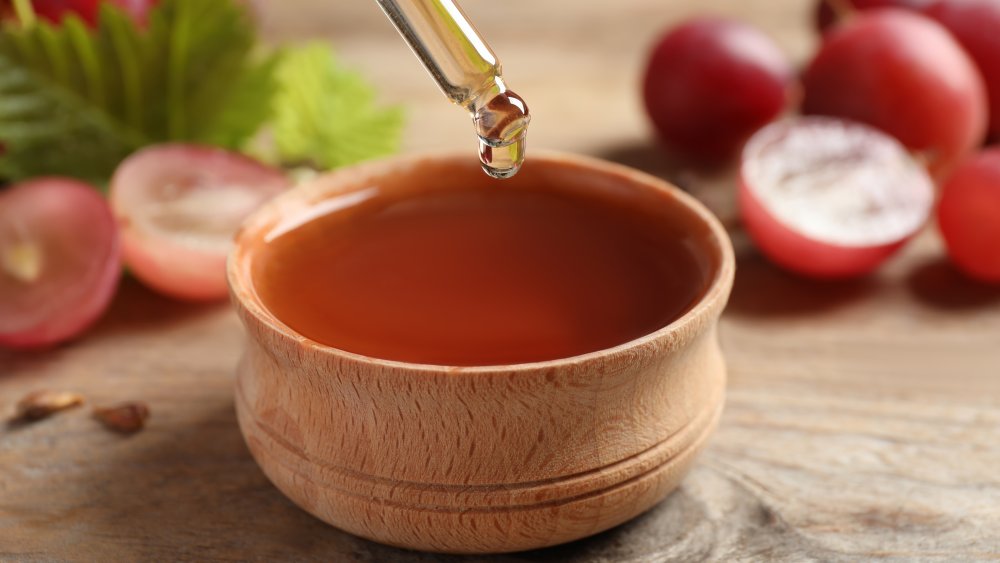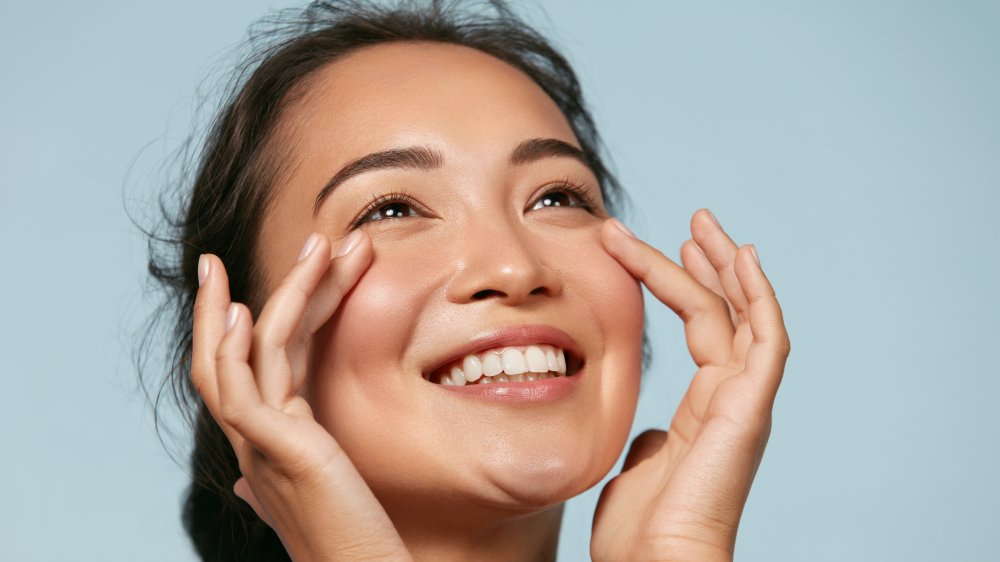What Happens When You Put Grapeseed Oil On Your Skin
A rich glass of red wine is enough to convince Meghan, Duchess of Sussex, that grapes are holy fruits. But if wine o'clock isn't your thing, then maybe grapeseed oil will win you over. Do you already use the nutrient-rich oil to achieve a perfect stir fry? Have you already added it to your hair routine to prevent split ends and increase shine (via MindBodyGreen)? Good news: Grapeseed oil also might be your skin's new best friend.
You can use the oil in its pure, unadulterated form or mixed with other skin products (via Well+Good). Opt for the cold-pressed varieties, as these have higher concentrations of active ingredients. Plus, it's smart to choose organic versions, as these are less likely to contain residue of potentially harmful chemicals (via Prevention).
Use the oil as a general moisturizer, or to treat trouble areas, whatever suits your skin's needs. Grapeseed oil doesn't clog your pores, unlike coconut oil, which can cause breakouts (via Byrdie). Instead, as research scientist Marisa Plescia noted, the oil will "penetrate the skin quickly, leaving [it] soft, supple, and moisturized."
Grapeseed oil can help prevent acne and inflammation
If you've got acne (or bacne), using grapeseed oil is a no brainer. Just ask Real Simple contributor Nina Huang, who started using a bottle in 2019, and reported not having experienced an "acne or ingrown hair flare-up since." Huang's results are probably due to the fact that grapeseed oil contains linoleic acid. If you're acne-prone, your skin is probably deficient in this nutrient, which helps maintain your skin's moisture and blocks irritants (via Begins with Skin). This deficiency means your skin's sebum (that oily substance that seals in your skin's moisture, prevents against dryness, and defends against infections) becomes thick and sticky (via VeryWellHealth). Increase the linoleic acid in your skin, and you help unclog your pores.
What's more, grapeseed oil also contains vitamin E. As Desiree Pais, beauty editor at Herbivore Botanicals, noted to Well+Good, vitamin E and linoleic acid together reduce inflammation. It may also reduce the marks left by acne scars, according to dermatologist Debra Jaliman (via Byrdie). Think of the duo like the Batman and Robin in the fight against red, sensitive skin. If you've got rosacea or eczema, the oil should be high on your list of skin treatments.
Grapeseed oil can help firm up skin and minimize wrinkles
Even if you're not acne-prone, there's a strong case to be made for making grapeseed oil a part of your skin's life. We're circling back to the linoleic acid, again. As it turns out, the acid not only works to unclog your pores. According to dermatologist Tsippora Shainhouse, it also gives you smoother and softer skin (via Prevention). Then there's the fact that grapeseed oil is filled with micronutrients called polyphenols, vitamins D,C, E, and antioxidants. Together, these work to not only protect you from harsh environments (think free radical damage and UV rays), but also to reduce sun spots, fine lines, dark circles, and wrinkles: all typical signs of aging (via Byrdie and Prevention).
We know, it sounds too good to be true, and you're probably asking yourself whether there are side effects. The answer? None known, per Medical News Today. But if you're allergic to grapes, stay clear. And, as always, when you use any natural skin product, you may develop an allergic reaction. If you notice redness, itching, or rashes after using grapeseed oil, seek out professional medical assistance.


